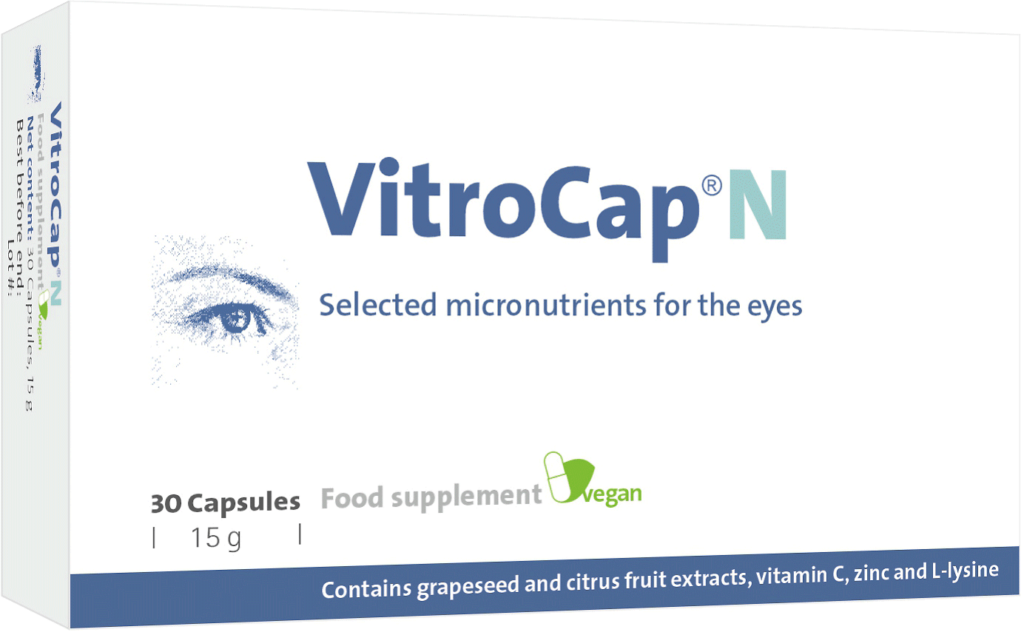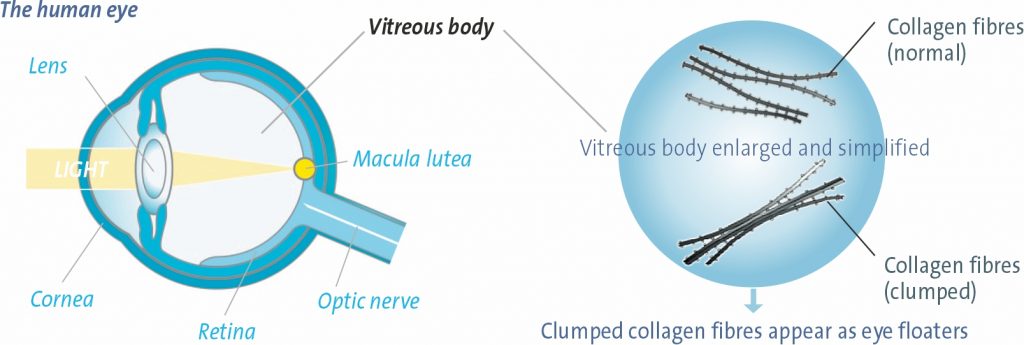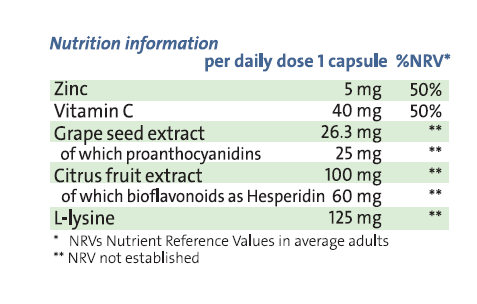
Our body relies upon an adequate supply of nutrients in every phase of life, particularly when under stress. Therefore, a balanced diet plays a significant role in health and wellbeing, including that of the eye. Sight is essential to so many daily tasks, which all require energy and precision like our work, watching TV, working on the PC, reading – whether in a newspaper, book, smartphone or tablet – or driving a car, which all require energy and precision. Poor lighting, nicotine and a lack of sleep, fresh air and exercise, subject the eyes to additional stress.
VitroCap®N is designed to support the specific needs of your eyes by supplementing your diet with selected micronutrients.
The eye is perfectly shaped for its function: the trapping and transmission of undisturbed and unaltered light signals to the recipient cells (receptors) of the retina. Essential to this process is transparent media, namely that of the cornea, the lens and the vitreous. Certain changes in these structures e.g. clouding or clumping, affect the transmission of the light and thereby the quality of vision.
To maintain function, these structures in the eye require sufficient and specific nutrients, which are predominantly sourced from the blood-vessel-dense outer layers of the eye (retina and choroid).
The normal metabolic process of any tissue produces unstable free radicals, which if produced in excess, in a way that overwhelms the body’s ability to regulate them, gives rise to a condition known as oxidative stress. Oxidative stress is exacerbated in the presence of blue light (a component of visible light [sunlight]). The eye (along with our skin), is the only organ that is exposed to sunlight and its high-energy rays, thus making it more susceptible to oxidative stress. A diet rich in nutrients such as Vitamin C and Zinc contributes to protect cells from the damage caused by oxidative stress.

VitroCap®N is designed to supplement your diet to help support the eye’s need for specific micronutrients and its main components are as follows:

Storage information: Store in a cool, dry place, in its packaging to protect from light, between 5°–25°C. Keep out of reach of children.
Dáileadh molta: Take one VitroCap®N capsule daily with water and after food for a minimum of 3 to 6 months.
Ingredients: L-lysine hydrochloride, citrus fruit extract (Citrus aurantium L.), capsule shell (coating agent: Hydroxypropyl methyl cellulose, colouring food: spirulina and apple concentrate, invert sugar), filler: microcrystalline cellulose, L-ascorbic acid (vitamin C); grape seed extract (Vitis vinifera L.), Zinc oxide, anti-caking agents: magnesium salts of fatty acids, silicon dioxide
Important instructions: VitroCap®N food supplement is not a substitute for a varied and balanced diet and a healthy lifestyle! Do not exceed the recommended daily amount. Pregnant and breastfeeding women should consult their doctor before use. If you are under medical supervision, taking medication or suffering from a disease, please consult your doctor before taking.
Our customer service team are more than happy to assist you with your enquiry. However, we ask for your understanding if our customer service can only provide answers to general questions. As we are a commercial organisation, due to food regulations* we are limited in the information we can communicate to consumers.
We have made information on research studies available to healthcare professionals and encourage you to discuss this with them directly. Please be aware that if you have an eye condition, particularly if you are also on medication, it is best to speak directly to your eyecare specialist/professional.
Thank you for your understanding
*Nutrition and Health Claims Regulation EU No.1924/2006